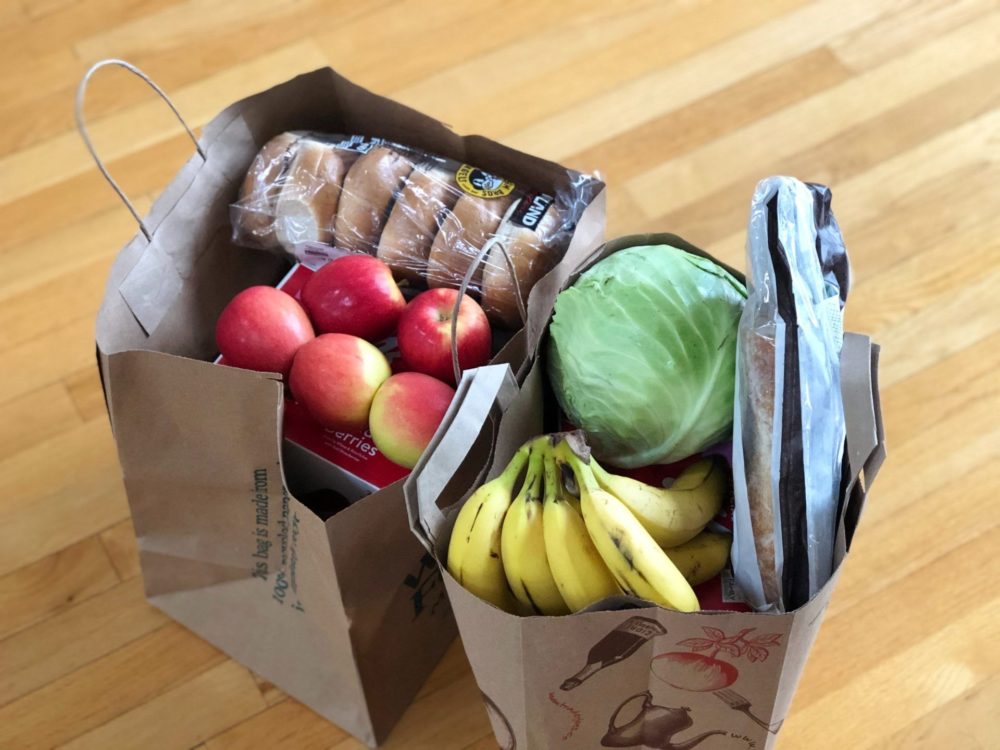Although much remains to be seen about how the pandemic will impact our economy, its effect on grocery delivery is clear. Shoppers have flocked to the service in an attempt to curtail their trips from the home and about 28% more shoppers are turning to online grocery, according to a report from the Food Marketing Institute, while 78% have made changes in where they shop as a result of the pandemic.
But for some consumers, the idea of a stranger fondling their tomatoes or not knowing whether he or she was wearing PPE as he or she bagged up your pantry goods can be a bit unsettling.
“Trust is so important now especially with the elderly or immunocompromised,” Joel Shapiro, co-CEO and co-founder of online personal grocery shopping service Dumpling explains, which matchmakes shoppers with buyers. “The big benefit of our ownership model is that users can work with personal shoppers they know and trust, who are using the right safety precautions, and who provide consistency. The pandemic has helped shine a light on the difference between someone who runs their own business with more control and the benefits of using them over and over again versus the gig economy where you don’t know who is going to show up.”
The West Coast-based startup has closed a $6.5 million Series A funding led by Forerunner Ventures as well as existing investors Floodgate and FUEL Capital and brings the company’s total raise to $10 million. The Series A comes after the company raised $3 million in August 2019.
The Dumpling app enables shoppers to build their own personal grocery shopping businesses in lieu of the traditional gig economy model that aggregates orders and assigns users to a pool of shoppers. Instead of a different Instacart employee being randomly assigned to fulfill your order each time you place one, Dumpling allows shoppers to cultivate a deeper relationship with a personal shopper and create a greater sense of trust and security. Users can, therefore, seek out the same personal shopper with each order and that allows them to provide instructions about how ripe they like their bananas or which substitutions are acceptable.
With 2,000 personal shoppers using the platform in all 50 states, Dumpling provides a variety of tools to its personal shoppers including business coaching. It also provides financial support by fronting shoppers with the money to pay for an order in advance. The shopper pays a transaction fee on each order as part of the platform fee and the grocery buyer pays 5% on top of the delivery fee set by each shopper.
After the onset of the pandemic, Dumpling has seen a 20x surge in the orders placed through its platform. Although some of this uptick may be due to the increasing interest in grocery delivery in general, Shapiro believes that the personal touches Dumpling facilitates have made it a more attractive option for leery consumers.
“In the traditional on-demand model, orders are not very large compared to how much a family typically spends per week on groceries. A big reason is that people only feel comfortable ordering non-perishables through these services. But we’re seeing a bigger percentage of the grocery budget going to a personal delivery person; the average size of orders are huge. There’s a stickiness once someone gets their first and second orders and they see that this is different: “this person knows me and customizes services for me and is incentivized to keep me happy as a customer,”” Shapiro explains.
The model is also intended to address some of what Shapiro views as the negative aspects of the gig worker model. There have been no shortage of news stories in recent months detailing tensions between gig workers and major companies like Instacart, DoorDash, Grubhub, and UberEats. By treating gig workers as independent contractors, some of these services have avoided legal requirements around paying benefits or providing liability coverage in the event of an accident. Public outcry led California to pass a law protecting gig workers from being classified as independent contractors. In Seattle, a recently proposed law would mandate sick pay for gig workers.
There have also been reports detailing how gig workers are often paid poorly for their work as the parent company pockets a large slice of each transaction. And as a surge in employment has sent many looking for a temporary financial safety net in the gig economy, long-time gig workers are feeling the squeeze. Securing coveted delivery driving spots or picking up enough rideshares has become a lot harder with the sudden increase in competition.
For some apps, workers are even faced with stressful time limits, he adds, such as a timer tracking how long it takes a shopper to select each item on the list with a timer that goes off if the app to indicate that the shopper is taking too long.
“We are empowering people and allowing them to work directly with customers and to create relationships. What we see in the gig economy is a different mindset where they don’t want shoppers to make any decisions,” Shapiro explains. “Through this more personal approach, when you have a business owner who is empowered to make decisions that use their local knowledge and relationships they can do things that a typical gig worker who is just doled out a job by an algorithm won’t do.”





